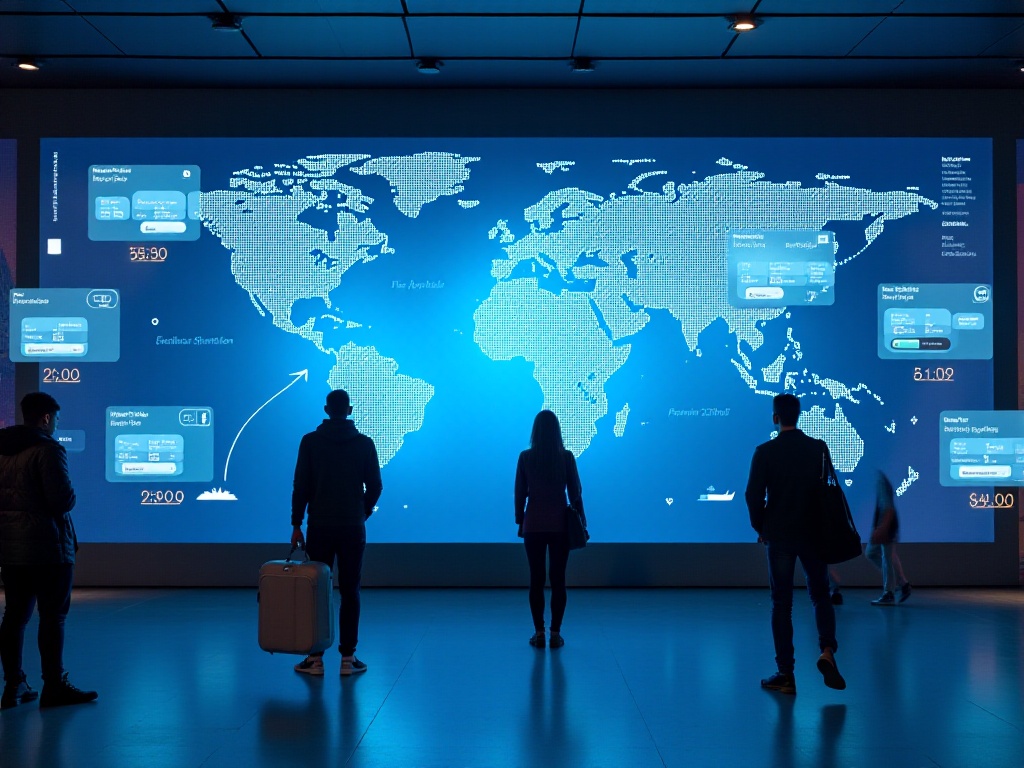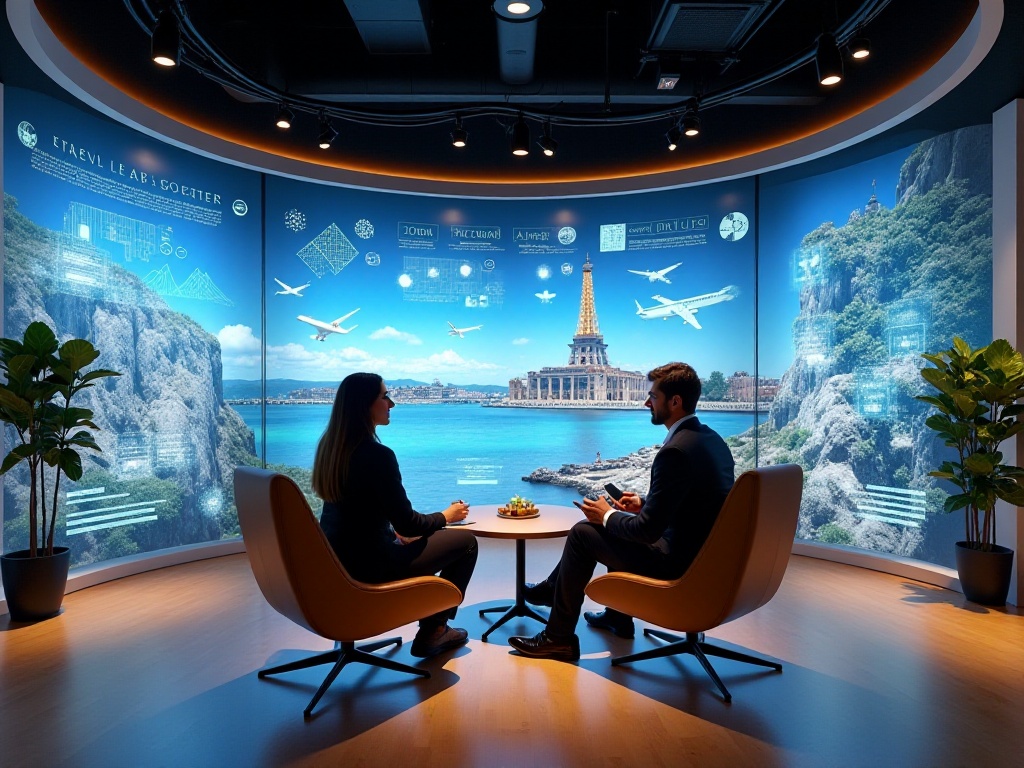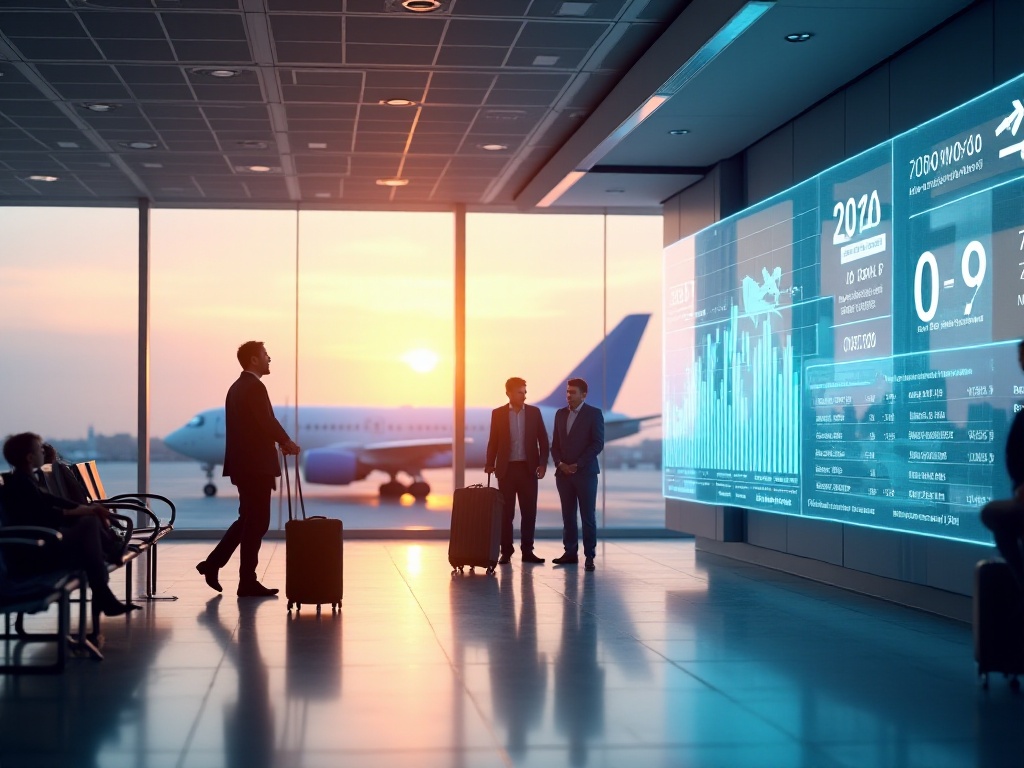Introduction
Hello everyone! As an experienced travel blogger who frequently travels abroad, I've noticed many friends struggling with travel budgets. Some fear spending too much and going broke, while others worry a limited budget will compromise their experience. There's no need to stress! Today I'll share my exclusive guide on how to plan your budget scientifically for a trip that's both cost-effective and fulfilling.
Budgeting Strategy
Many people get overwhelmed when it comes to budgeting, thinking it's extremely complicated. But trust me, once you master the right method, budget planning becomes super simple! Last month, through careful planning, I spent only 12,000 on my Japan trip that was originally estimated at 15,000. I visited all the places I wanted to see, ate the food I wanted to try, bought what I wanted to buy, and still had money left over - it couldn't have been better!
How to plan specifically? First, set an overall budget ceiling. This number shouldn't be arbitrary - it needs to be realistic. Generally, it's recommended to keep single trip expenses within 30% of your monthly income. For example, if you earn 10,000 per month, spending around 3,000 on the trip would be appropriate. Of course, if you have a habit of saving or have specifically saved money for travel, you can be a bit more flexible with the budget.

Advance Preparation
When it comes to advance preparation, this is crucial for saving money! For Japan, you need to calculate these basic expenses before departure:
First is the visa fee, which is a mandatory expense of about 300 yuan. If your passport is about to expire, add another 350 yuan for renewal. While this isn't a huge amount, it needs to be factored in advance to avoid surprises.
Airfare is a major expense with significant price fluctuations. Last time, I started monitoring flight prices three months in advance, checking booking platforms daily. Finally, late one night, I spotted a special deal on Beijing to Tokyo flights and immediately booked it - only 2,300 for a round trip, what a steal! During holidays, the same route could cost over 4,000 or even 5,000. So if you want to save money, doing thorough research in advance is essential.
For accommodation, there are many options. If you're a budget traveler like me, youth hostels are perfect, costing only 200-300 yuan per night. They're not just affordable but great for meeting people from around the world, often finding like-minded travelers to explore with. If you want more comfort, business hotels at 400-600 per night are a good choice. Of course, if your budget allows, you can opt for high-end hotels over 1,000 per night for a luxury experience.

Local Expenses
Once in Japan, there are many ways to spend money. However, with proper planning, you don't need to worry about overspending.
Regarding transportation, if you're staying for 7 days or more, I strongly recommend getting a JR Pass. Though it costs around 2,000 yuan upfront, you can freely ride JR line shinkansen and trains, plus boats - it's incredibly worth it! In city areas, getting a SUICA or PASMO card is recommended. These transit cards are similar and very convenient for subway and bus rides. Daily transportation costs are around 200-300, depending on how far you travel.
Food is a daily essential expense. In Japan, a regular bowl of ramen costs 40-50 yuan, a bento 50-70, and an izakaya set meal 100-150. If you're looking to save money, convenience stores are your best friend! Onigiri only costs 15-20 yuan, and sandwiches and bentos are also affordable and quite good. My daily food budget is around 300 yuan - breakfast at convenience stores, lunch at small restaurants, and dinner either at an izakaya or a well-rated restaurant for a proper meal.
Experience Optimization
Honestly, entertainment and shopping are where it's easiest to overspend. But these expenses are completely controllable if you stay disciplined.
It's essential to research admission fees in advance. Tokyo Disneyland costs around 400 yuan for entry - not cheap but definitely worth it! The Imperial Palace and Sensoji Temple are free, and many museums also have free admission times. I once specifically visited the National Art Center Tokyo on a free day - not only saved on admission but also got a free guided tour from volunteers, such a great deal!
Shopping budgets must be strictly followed! Before each trip, I set a shopping limit, like 3,000 yuan this time. Then I make a must-buy list and purchase according to priority. Cosmetics, snacks, souvenirs - there are so many things to buy. But with a budget limit, you won't impulsively buy too many things you won't use.

Money-Saving Tips
To make your budget go further, I have several exclusive tips that are guaranteed to work!
When booking flights, try Tuesday or Wednesday early mornings. Airlines often release special fares during these times, much cheaper than usual. Last time, I stayed up until 2 AM and grabbed a special fare ticket, saving nearly 1,000 yuan compared to regular prices! Though staying up late was tiring, the savings were totally worth it.
For accommodation, you don't necessarily need to stay in the city center. When I was in Tokyo, I stayed in Ikebukuro - though slightly far from the center, transportation was very convenient with a subway station nearby. Most importantly, the room rates were half of those in the city center! The room was smaller, but who cares about room size when you can afford a higher-grade hotel!

Emergency Preparation
Even perfect plans can go wrong, so always keep emergency funds. I recommend reserving at least 15% of your total budget as backup.
This came in handy during my last Japan trip. My booked youth hostel had to cancel due to a typhoon, forcing me to switch to a more expensive hotel, costing an extra 500 yuan. Without emergency funds, I would have been in trouble. This money acts like insurance, making the whole journey more secure.
Lessons Learned
Through years of travel experience, I've realized that travel budgeting isn't just about saving money, but making every penny count.
For example, with accommodation, rather than saving a few hundred yuan staying in remote areas, it's better to spend more on locations with convenient transportation. This saves time and transport costs while making the whole trip more enjoyable. Similarly with dining, you don't have to eat at convenience stores all the time. Occasionally visiting a well-rated restaurant to experience local food culture is an essential part of travel.
The same applies to shopping. Instead of buying many cheap but unnecessary items, it's better to carefully select a few things you really like. I always buy myself one special souvenir each trip - though it might be expensive, seeing it always brings back wonderful travel memories, and that feeling is amazing.

Final Thoughts
Travel budgeting is like a navigation system - it's not meant to restrict us but to help us better plan our route. Through reasonable budget planning, we can fully enjoy a perfect travel experience while controlling expenses.
Remember, the value of travel isn't measured by how much you spend, but by how many unforgettable memories you create. I hope this article helps everyone achieve a relaxing and fulfilling Japanese journey!


